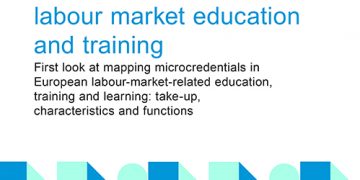Micro-Credentials Resource Hub
- Stay informed about the latest developments
- Gain a comprehensive understanding of micro-credentials
- Access valuable insights and best practices

How Micro-Credentials are Changing the Landscape of Skills-Based Learning: Lessons from Australia
What’s been happening with micro-credentials Down Under and what can we learn from their use? Following the release of earmarked…

Micro-Credentials and Skills-Based Learning in the United States
What does the micro-credentials landscape look like in the U.S.? And what can we learn from it? In the U.S.,…

Creative Approaches to Assessing Micro-Credential Skills and Competencies: AI and Blockchain-Enabled Assessment
Will emerging technologies — AI, blockchain and immersive learning — have an impact on what micro-credentials look like? Will assessment…

Using the Development of Micro-Credentials to Improve Diplomas and Degrees
Micro-credentials are quickly emerging as a response to the urgent need to reskill and upskill many who find their future…

How to Design a Micro-Credential that Meets Demand
Canada has about 10,000 micro-credentials. But many do not meet the definition of what they are intended to be: short,…

Navigating the Challenges of Micro-Credentials
Micro-credentials: A timeline of rapid rise In 2017, Ontario began introducing micro-credentials, focusing on short courses that develop skills demanded…

Three Key Steps to Evolve to MICRO-CREDENTIALS 2.0

14 Issues We Must Address to Evolve to MICRO-CREDENTIALS 2.0!

